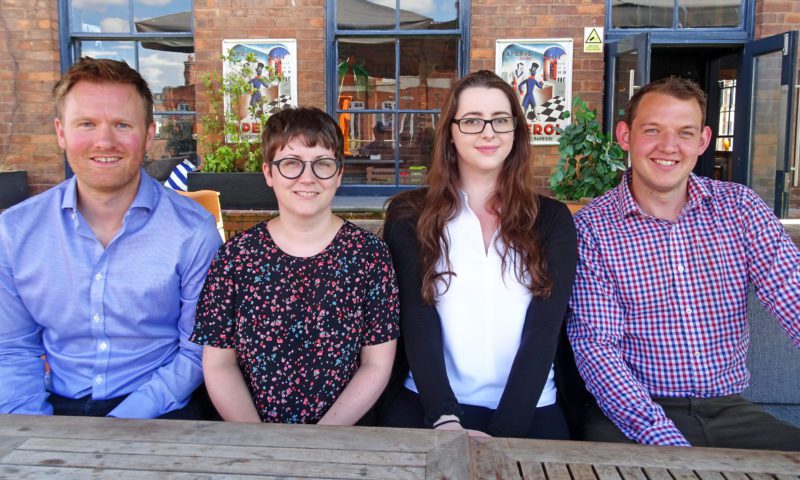Register to get 5 free articles
Reveal the article below by registering for our email newsletter.
Want unlimited access? View Plans
Already have an account? Sign in
What is search engine optimisation?
SEO is the science, and the art, of improving the visibility of your web pages in search engines. It’s not to be confused with pay per click, which is when you pay to appear in the search engines’ rankings and the top advertising slots. SEO helps your business appear in the organic search results; it means you’re there on merit, because your site is relevant to your clients’ searches.
Why should businesses prioritise SEO?
SEO remains one of the most cost effective ways to market to your audience. It’s also measurable, so you can see the impact of your investments. But, it really needs to be seen as a medium term investment. It takes time and takes continual effort on a monthly basis to achieve your targets but the rewards are huge if you put a strategy in place that delivers results.
For small businesses there are two areas of SEO:
- Organic search means having your company website appear in the first page of the search engine listings, after the paid adverts, when a client searches for certain keywords. If you focus on SEO you can expect see progress here after six to 12 months, if the market is competitive, so think of the first year as an investment. In the second year, it starts to become a sustainable effort.
- Location based marketing is also on the rise. This is really important, especially if you’re a local business. When you carry out a search you often see a map, with three results linked to that map. That’s almost a little search engine in its own right. Optimising your free Google ‘My Business’ profile will help you to start getting those results when people search for services in the local area.
Should companies hire a staff member to focus on SEO, or outsource the job to an external company?
SEO needs a real blend of lots of different skill sets, some creative, some technical and some analytical. It’s quite hard to find one person who can do it all – it’s a right brain and a left brain job and is quite detailed and repetitive. If you’re looking for someone in house, ideally you need a person with a digital background who has worked in marketing roles before, so has that balance of skills. That’s why a lot of people outsource it to agencies because it’s very specialist. Agencies can provide a service which involves more than one person contributing to deliver that overall result, so in general it’s more cost effective than recruiting someone.
AWARDS
Awards are really important to us as an industry. Because our sector is not regulated, one way of demonstrating your achievements is being recognised by leading industry figures. We’ve received many awards over the last few years and we class ourselves as one of the best search marketers in the UK and Europe. We’ve won the UK Search Awards, Google’s Partner Awards and have been been a finalist in the European Search Awards. We’ve also won awards for Facebook marketing at the dotCOMM awards, and digital awards for Business to Consumer Marketing. It’s important to be continued to be recognised in this industry because it’s continually evolving and changing so we’re delighted to be finalists in two categories of the UK Search Awards this year, as well as the Chambers of Commerce awards. Often we find people have come to us because they’ve heard about our awards and that gives us extra credibility in the field.
How do search engines determine pages’ relevance? What makes pages stand out?
If you’re looking at a complete list you can get quite bogged down. There are over 200 ranking factors that search engines take into account when putting pages into a list of results. Really, at the top level there are three core areas. These essentially fall under:
- Content
- Links
- Technical optimisation
These are the fundamentals that anyone optimising a site needs to address. We sometimes see websites that have a lot of content, but it’s just not optimised. It’s churned out without any thought or any measurement. A big part of SEO is ensuring all of your content adds value and it’s optimised towards your end user. It’s important to develop a content strategy for your business that speaks to your target audience and helps you to grow.
Links are about the way your website is perceived across the rest of the web. The wrong link to your website can be quite detrimental to results so building a fantastic web of links to your site is a key part of ranking and always will be. Managing your link profile and improving it is so important, it’s about quality not quantity. In the past dodgy SEO agencies might have gone out and bought you loads of links. Those days are over. You have to achieve and earn your links to gain ranking improvements.
Finally, the technical element, is the under the hood stuff; which is how search engines, like Google, see and understand your site. We look at the content, the words on the page, but that’s only one area. There are lots of technical aspects that can lead to the site improving, the big ones are site speed and making sure the site is optimised for mobile as well as things like structured data, metadata and code to text ratio. These can all have an influence on search rankings.
Why are keywords so important?
Keywords are the start point for SEO. Over 90 percent of online experiences start with a search. You really need to align your website with your customers’ needs and know which keywords they may type into the search engine. Some companies might think ‘I’m business to business, so SEO isn’t for me me’ but there’s a huge shift taking place in B2B. We call it the “consumerisation” of B2B marketing. We already go online, research and compare websites and download case studies for our own daily lives. This experience is moving to businesses as well now. At SEO Works we like to talk about ‘micromoments’, that moment in time when we act on an intent, search for a word, and expect an immediate answer. It happens all the way along the purchase journey for consumers and B2B. As a business you need to think about the micromoments that are important for your business and to the client and how to be there online when they happen. Keyword research is a big part of that.
Does website usability make a difference to search engine rankings?
The amount of time that a user spends on a website before they go back to the search result is considered a ranking factor. But really it’s about looking at the big picture – making sure your site is performing to meet your objectives. A poor quality, unusable or poor looking site, or a site that doesn’t work on mobiles, is like sending people to a destination without a map – they’ll get lost and they’ll leave. Usability is bigger than SEO, it’s essential to give a good experience to the end user. The website should have a goal in mind and usability is about making it easier for the user to complete that goal.
Where can I get started with SEO?
Top SEO tips
- Research – The first stage of taking being found online seriously is learning how your target audience is searching for the product or service you offer. Think about all the stages in that purchase journey, from research to enquiries. Identify the different searches people might use along the way. Often we see business owners who are very focused on that last part of the journey, where someone has decided which product or service they want and types that product name into Google. You need to think back from that, the search probably starts at a much broader set of keywords – for example ‘Funeral Director, London’. So, maybe if you’re looking for a service online, you’ll start with general search words which you’ll refine as you do more research. The first point is to do your keyword research and think of the most common searches performed by customers. Have a look – are you there for your searches? Are you happy with what you see? How do you compare with your competitors? Are you there on mobile?
- Strategy – Once you have a picture of where you want to be, you have to think about how you’re going to get there. A lot of that involves creating a strategy of how you’re going to build your website through content, technical aspects and links. Also think about your goals, you’ll need to benchmark where you are. Our benchmarking tool (http://report.seoworks.co.uk) can help with that. You also need to decide on aims for the website, as different business have different goals. Do you want to generate more traffic, do you want more leads, more enquiries, or do you want to get more downloads, more comments, or more online sales? It depends on your business, as to what’s important to you.
Measure – Once you have your platform, set up a plan that measures performance over time, so you can grow and learn. Everything is measurable and by practicing this you’ll start to see improvements and ultimately success.
Ben Foster is the managing director of SEO Works. This feature was originally published in the January 2018 issue of Jewellery Focus




















